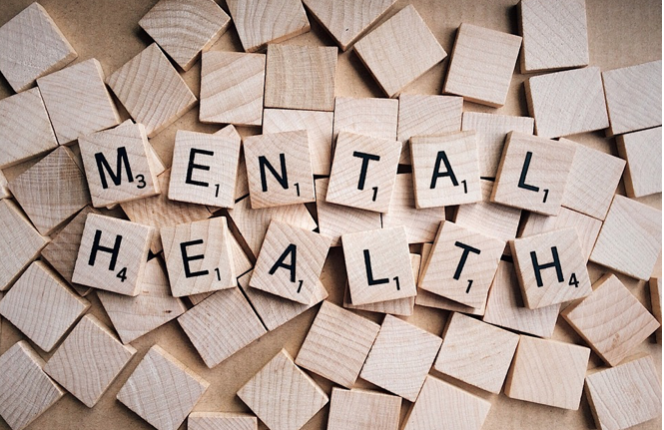Huge thanks for this guest blog post by Bethany Francois. MSc Eating Disorders and Clinical Nutrition. Find her on Instagram: bethany_laura_
As mentioned in Part 1 of this blog post, health is not just a physical concept but involves mental and social wellbeing too. Therefore, by definition it is impossible achieve a healthy status if one of these aspects is jeopardised for the other i.e. regardless of what you are eating, if your dietary choices are negatively affecting your mental wellbeing you cannot reach state of health.
The mass of dietary information available from unreliable and unqualified individuals has made food choices complicated and confusing. We know that social media use is associated with an over-fixation on eating ‘the correct way’, which can have a profound impact on our mental health (2). It is unsurprising that what we eat can often have a psychological impact when words and phrases such as ‘bad’, ‘guilty pleasure’, ‘naughty’ and ‘clean’ are used to describe the food we eat. An overemphasis on our dietary choices as a measure of our self-worth is dangerous and likely to result in low self-esteem and can lead to eating disorders and other mental health conditions.

In a society where disordered eating behaviours have become normalised e.g. removal of food groups, calorie counting and earning the right to eat via exercise, it can be difficult to recognise (in ourselves or others) when our dietary habits may be having a detrimental effect on our mental health. Here are some signs to look out for:
- Preoccupation with food
- Anxiety at the thought of straying from your meal plan or last-minute changes to eating plans
- Avoidance of social eating and self-isolation
- Feelings of guilt or shame associated with food
- Compensating by restricting/skipping meals
- Justification of eating with exercise
- Basing self-worth on dietary choice
- Chronic under-eating
Take Home Messages
- Diet is an important part of our overall wellbeing and a poor diet can both be a contributing factor and consequence of mental illness. However, it’s important to recognise that mental illnesses have complex aetiologies and require multicomponent treatment strategies. Whilst diet may be a tool to improve symptoms, it is not a cure (note that in the SMILES study (1), all participants remained on their current treatment plan throughout).
- Nourishing yourself properly and eating regular meals are likely to have a positive impact on your mental health. Research suggests that the Mediterranean diet may be associated with a decreased risk of depressive symptoms. However, eating well when struggling mentally can be extremely difficult. Feeling guilt or shame due to being unable to prepare meals will only make things worse. It is so important to be kind and compassionate towards yourself-you are doing the best you can.
- Our relationship with food should always allow us to be able to fully engage with other aspects of our lives. Being too anxious to attend a friend’s birthday meal will always be worse for your health than any food you would have eaten.
- Please remember you can have poor health as a result of your relationship with food without experiencing weight changes. Health is not just physical and weight should never be solely used as measure of our health. Feelings of anxiety, shame and guilt are never healthy, no matter what your weight and you deserve the support to overcome these feelings.
- People often roll their eyes at the word ‘balanced’. It may sound boring and it’s not as eye-catching as celebrity endorsed dietary products but it’s the truth. Regular and healthy meals are likely to have a positive impact on our mental health. But equally, an obsessive and restrictive approach to our dietary choices will never result in happiness.
Resources and Support
Mind: https://www.mind.org.uk/
Young Minds: https://youngminds.org.uk/
Mental Health Foundation: https://www.mentalhealth.org.uk/
Rethink Mental Illness: https://www.rethink.org/
Samaritans: https://www.samaritans.org
Beat: www.b-eat.co.uk
References
1. Jacka, F., O’Neil, A., Opie, R., Itsiopoulos, C., Cotton, S., Mohebbi, M., Castle, D., Dash, S., Mihalopoulos, C., Chatterton, M., Brazionis, L., Dean, O., Hodge, A. and Berk, M. (2017). A randomised controlled trial of dietary improvement for adults with major depression (the ‘SMILES’ trial). BMC Medicine, 15(1).
2. Turner, P. and Lefevre, C. (2017). Instagram use is linked to increased symptoms of orthorexia nervosa. Eating and Weight Disorders – Studies on Anorexia, Bulimia and Obesity, 22(2), pp.277-284.
Pingback: Are there foods good for mental health? – Copy Book Health
Pingback: Are there meals excellent for psychological well being? - cdnaas
Pingback: Are there foods good for mental health? – Health Exercise Book